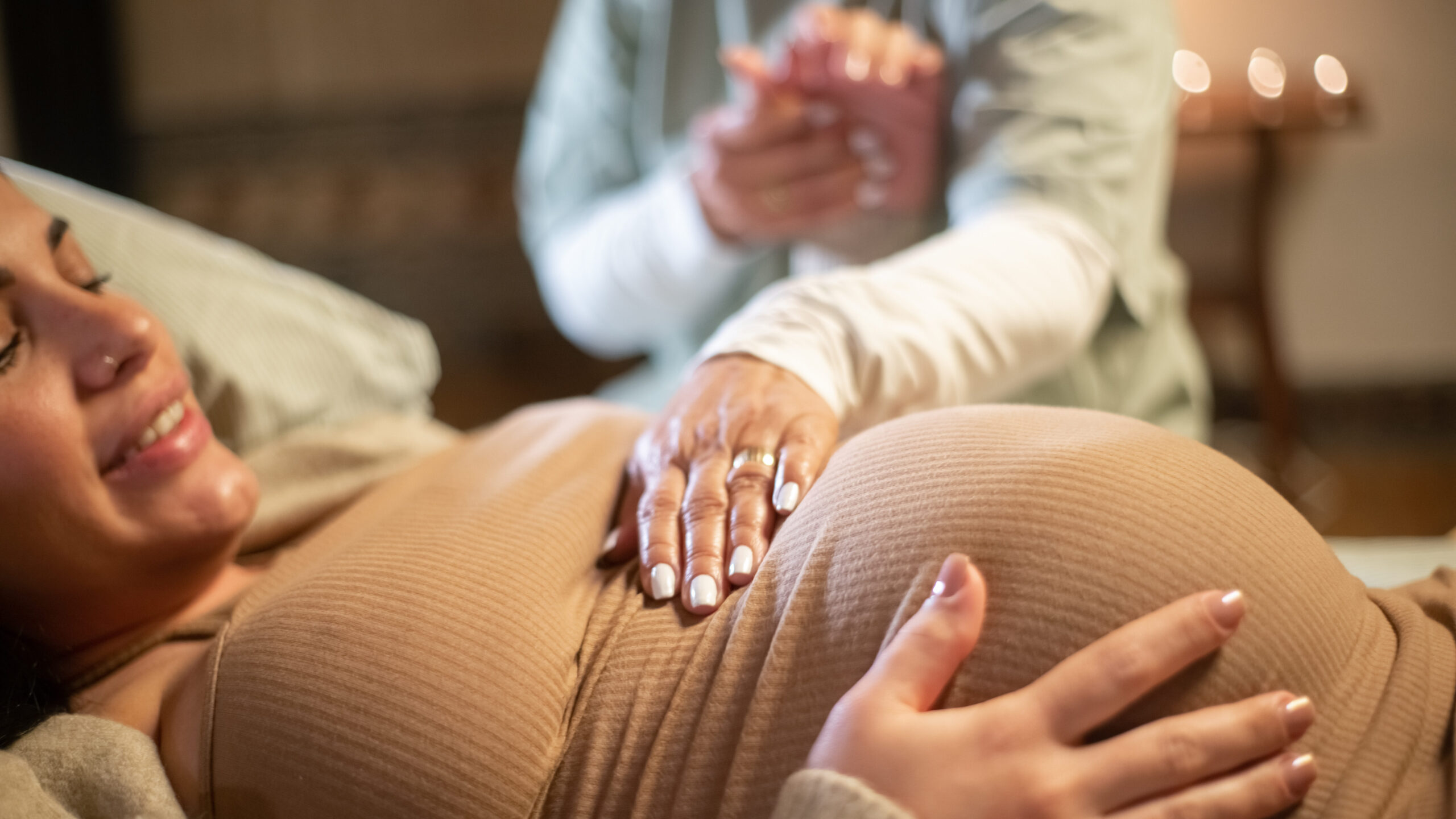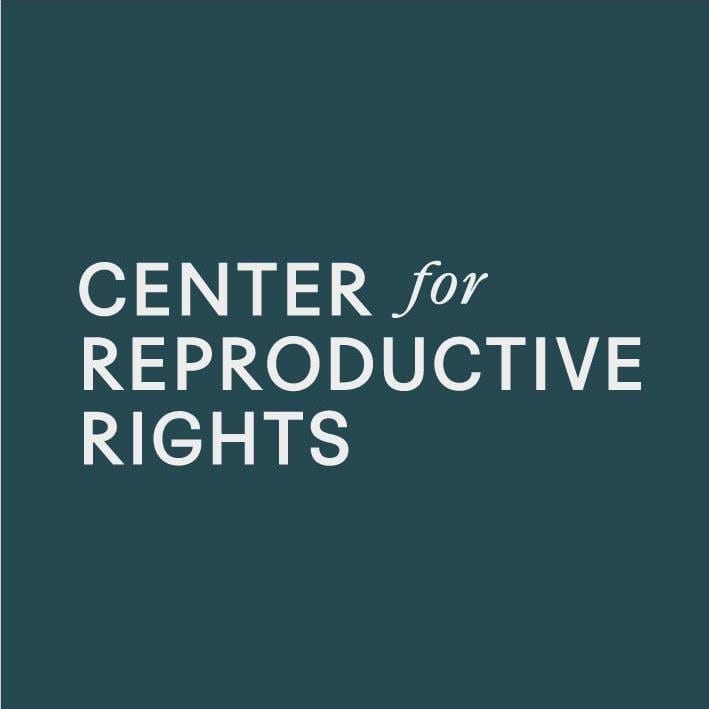Defending Reproductive Autonomy: Center Sues Hawaiʻi to Protect Midwifery Care
Lawsuit asks state court to block a midwifery restriction law to restore access to safe, respectful, and culturally informed maternal care in Hawaiʻi communities.

The Center for Reproductive Rights and its partners filed a lawsuit today in a Hawaiʻi state court against a midwifery restriction law that is preventing pregnant people from receiving pregnancy and birth care from trusted, skilled midwives. The law has been particularly devastating for Native Hawaiian midwifery practitioners and families of color.
The lawsuit was brought on behalf of nine plaintiffs—including midwives, midwifery students, and women who are pregnant or plan to become pregnant and grow their families. The Native Hawaiian Legal Corporation and Perkins Coie LLP joined the Center in filing the case.
About the Plaintiffs
Find out about the plaintiffs—midwives, midwifery students, and others who wish to grow their families—and why they decided to join this case.
In 2019, Hawaiʻi lawmakers enacted a law that defines midwifery broadly and imposed new licensure requirements on midwives in the state. In July 2023, an exemption under the law that allowed the practice of midwifery without a license expired. As a result, essentially anyone providing information and care during pregnancy, birth, or postpartum—including midwives, a broad range of other birth workers, and even family members—now risks imprisonment and fines. The law also derails training for student midwives and limits the maternity care options for people who are or plan to become pregnant.
Today’s lawsuit is part of the Center’s strategy to defend reproductive autonomy rights—fundamental rights that people do not lose when they become pregnant. Reproductive autonomy encompasses the right to make informed decisions about where, how and with whom to access care in pregnancy, birth, and postpartum—including with a trusted midwife.
“Hawaiʻi, like the rest of the U.S., is in the midst of a maternal health crisis—one that disproportionately threatens the health, lives, and well-being of Native Hawaiian and other Pacific Islanders. Hawaiʻi should be expanding, not restricting, options for maternal care,” said Hillary Schneller, senior staff attorney at the Center. “The solution to maternal health inequities is more reproductive autonomy, not less. It is critical that pregnant people have access to trusted and culturally informed providers in their own communities, as they’ve had in decades past.”
What is the midwifery model of care?
The midwifery model of care recognizes birth as a natural physiological process and prioritizes respect for the pregnant person and their agency.
In Hawaiʻi, midwives who serve remote areas and communities of color play a critical role in expanding access to health care, reducing unnecessary interventions, and strengthening cultural connections that empower pregnant people and their families.
Law Threatens Network of Traditional and Apprenticeship-Trained Midwives and Cuts Off Culturally Informed Maternal Care
After decades of suppression of Native Hawaiian healing practices and legal restrictions on midwifery, the state repealed its restrictive midwifery licensure requirement in 1998. Over the next 25 years, midwives practiced openly and cultural practitioners worked to revitalize Native Hawaiian practices around pregnancy and birth. A new generation of midwives—many apprentice-trained—was beginning to emerge. The midwifery restriction law threatens these efforts to reclaim reproductive and cultural autonomy.
The midwifery restriction law, HRS §457J, defines midwifery in broad terms, essentially requiring a specific state license for anyone providing advice, information, or care during pregnancy, birth, and postpartum. It also uses arbitrary and discriminatory criteria to determine who is eligible for a midwifery license, limiting eligibility to individuals who have completed certain accredited programs and cutting some midwives off from state licensure if they complete one of the training paths after 2020.
Today, anyone who practices “midwifery” without a license—including midwives who have practiced for years—risks criminal sanctions and other penalties. Licensed midwives, who had previously worked cooperatively alongside traditional midwives and other birth workers, also risk criminal penalties for “aiding and abetting” unlicensed midwifery.
“I am joining this lawsuit because of my kūpuna—my ancestors—and the responsibility I have to care for and heal my community,” said Kiʻinaniokalani Kahoʻohanohano, the lead plaintiff in the case who served her community as a midwife for 20 years before the law took effect.
Increasing midwifery interventions could avert 41% of maternal deaths, 39% of neonatal deaths, and 26% of stillbirths. — World Health Organization (WHO)
“The midwifery restriction law continues a harmful legacy of legal barriers to midwifery, threatens an emerging network of traditional and apprenticeship-trained midwives, and cuts off care from trusted, culturally informed maternal health providers,” added Schneller. “Pregnant and birthing people living in rural areas are especially harmed, because midwives like our clients are often the only providers who travel to rural and remote areas to provide care.”
A Maternal Health Crisis
Hawaiʻi is facing a maternal health crisis in which pregnant people face a shortage of care in their communities, inequitable treatment in the health care system, and preventable deaths and illnesses during pregnancy, birth, and postpartum. Nationally, Native Hawaiian and other Pacific Islander people have the highest pregnancy related mortality ratio among all women of all races.
U.S. Pregnancy Related Mortality Ratios (PMR)
Deaths per 100,000 live births, 2017-2019
| 62.8 | Native Hawaiian and other Pacific Islander women |
| 39.9 | Non-Hispanic Black women |
| 14.1 | Non-Hispanic white women |
Case Argues Law Violates Hawaiʻi State Constitution
The lawsuit seeks a preliminary injunction to stop the threat of criminal and other penalties for traditional and apprenticeship-trained midwives and others who may fall within the law’s expansive reach. In addition, it is requesting the court to enjoin the law’s 2020 cutoff for students pursuing their certified professional midwife (CPM) credential via apprenticeship training.
The Center and its partners argue that the midwifery restriction law violates the Hawaiʻi Constitution because it:
- Violates individuals’ fundamental rights to reproductive autonomy, which the state constitution guarantees through its protections for rights to privacy, life, liberty, and equality;
- Violates the state’s affirmative duty to protect Native Hawaiian traditional and customary practices; and
- Is unconstitutionally overbroad, chilling the exercise of constitutional rights by plaintiffs, pregnant people, midwives, and others who support and care for pregnant people.
The case, Kahoʻohanohano v. State of Hawaiʻi, was filed in the Circuit Court of the First Circuit, Honolulu, Oʻahu, on behalf of plaintiffs Kiʻinaniokalani Kahoʻohanohano, Kiana Rowley, A. Ezinne Dawson, Makalani Franco-Francis, Kawehi Kuʻailani, Moriah Salado, Morea Mendoza, Emilie A., and Piʻilani Schneider-Furuya. Read the full complaint here.
Hawaiʻi Midwifery Restriction Law: A Violation of International Human Rights
The Center and 14 other organizations submitted a shadow report to the UN Human Rights Committee in September 2023 arguing that the Hawaiʻi midwifery restriction law violated international human rights standards.
In December 2023, the UN Human Rights Committee urged the U.S. to “remove restrictive and discriminatory legal and practical barriers to midwifery care, including those affecting midwives in communities of people of African descent and Indigenous Peoples.”

